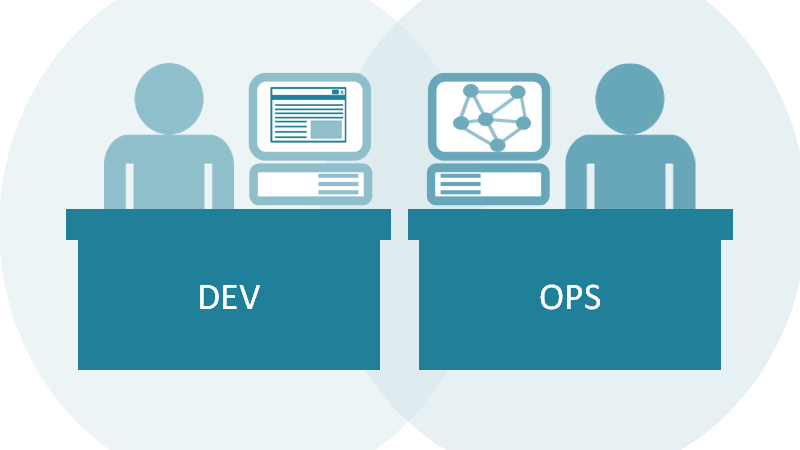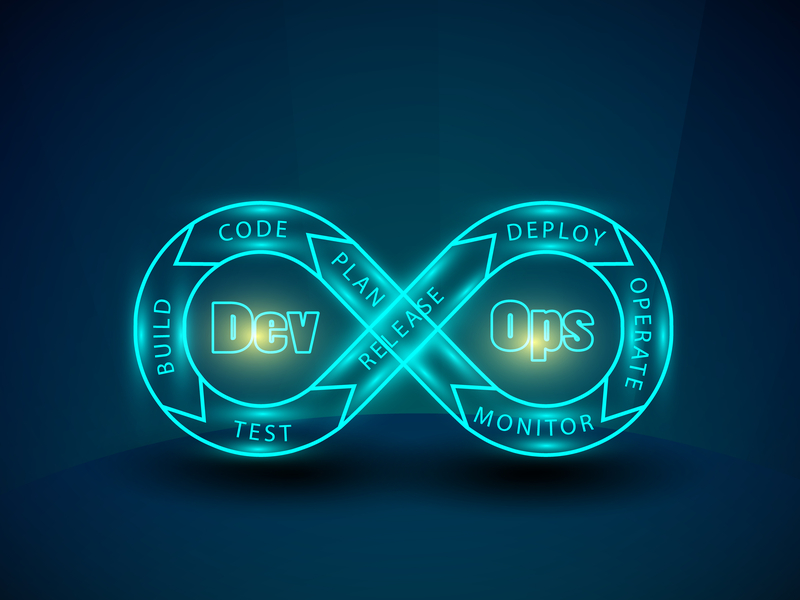
DevOps is a term on the junction of two specialties – Development and IT Operations. DevOps is a methodology that appeared in 2009. Its common goal is to make the process of software development more efficient and predictable. The concept of DevOps is based on the collaboration between teams of software developers, system administrations and quality assurance (QA) specialists.
If you want to implement the DevOps methodology in your company in-house you should hire a remote DevOps specialist or a dedicated DevOps team from one of trustworthy DevOps companies. The third way is to grow your own DevOps engineers from in-house system administrators through collaboration with developers and QA engineers.
As you understand, the fastest way is to refer to the DevOps consulting service company. In this case, you’ll hire the whole team of seasoned professionals at once, without investing a lot of effort and time.

How does DevOps work?
DevOps philosophy is based on continuous service delivery, meaning the constant gradual improvement of software development workflows, infrastructure management and monitoring. As a result, we have the next principles:
- Continuous Integration. The basic thing about CI is quick identification of errors and constant improvement of software quality. Thus, development time is reduced by automation of the tests and builds. CI looks like automated testing and merging the blocks of new code into the central repository as quickly as possible.
- Continuous Testing. Continuous Integration needs non-stop testing. Developers write a code that needs to pass the tests to get to the main repository and write automated unit tests the code must pass.
- Continuous Deployment. This is the next logical step after Integration and Testing. During this step the features that were approved are immediately delivered to the customers. Continuous Deployment significantly increases the speed of the new software releases.
- Continuous Monitoring. This is the process of fulltime-monitoring and logging. Continuous Monitoring allows tracking all the changes to find errors and immediately fix them.
All these processes should be automated for remarkable efficiency improvement.
What will you have with DevOps?
Each methodology you will implement needs to be beneficial for the company. What benefits will you receive from DevOps?
- Lower Expenses. The first important benefit for the business is cost reduction. DevOps methodology is based on the automatization. Thus, all the processes will become faster. The cooperation between teams will get you economy of time and money.
- Speed. As we say, processes will go faster. You can increase release frequency, introduce new features faster than competitors and become more competitive on the market.
- Reliability. With DevOps, you can control the quality of software, changes and updates on each stage. That makes software development safer and more reliable.
- Security. DevOps has its own policies, strategies and standards. Each of them pays attention to the security issues and embed them in DevOps lifecycle.
- Flexibility. The continuous DevOps processes allow to make changes and add new features almost whenever you want or need.
What about risks and challenges? DevOps technology is already quite stable. An experienced team can implement this methodology with minimal risks for your company. It is important to note that the best way to implement DevOps is by hiring the third-party team.
It will cost you less than hiring an in-house team one by one. With the outsourcing team, you won’t worry about the hiring of new people if somebody leaves or sick, you won’t work on team cohesion or care about management. This approach significantly simplifies work processes.

Final thoughts: why do you need to hire a DevOps company?
We described the definition of DevOps philosophy, its benefits and common principles. Thus said, you can now understand if it will be useful for your company or not (and believe us – it will!) If you decide to implement DevOps processes in your company, you might hire DevOps engineers in-house, hire a third-party team or retrain your developers and system administrators. The simplest way is to hire the third-party team but you should choose the more suitable one for you (besides, the external DevOps specialists can train your in-house staff much quicker).
In general, DevOps methodology will make software development processes more efficient thanks to continuous implementation, testing and deployment. This approach allows making MVP or Minimum Viable Product as fast as it can be made. As a result, you will have the ability to react to customers requests faster, which will increase your competitiveness.
